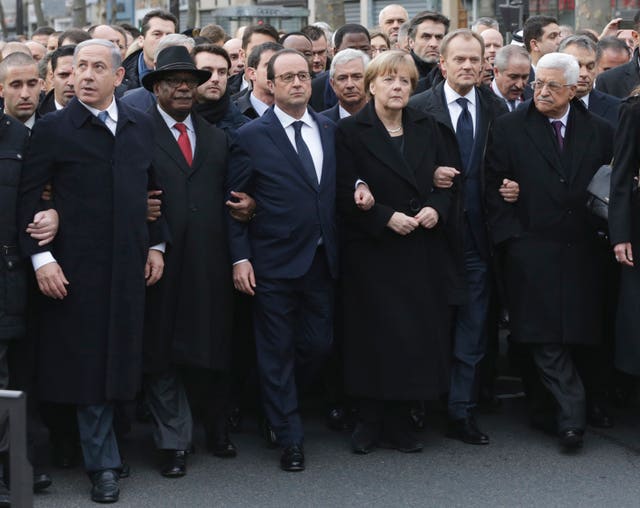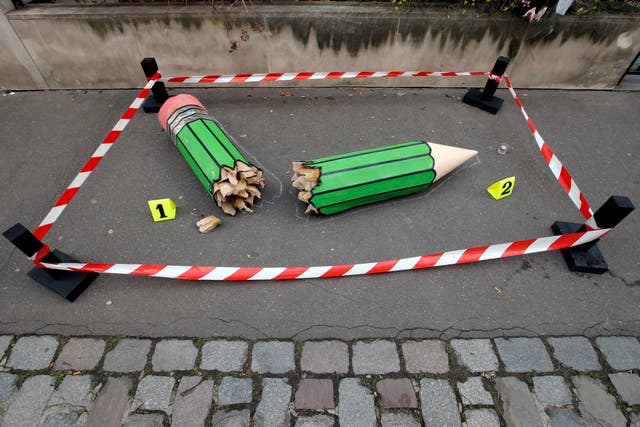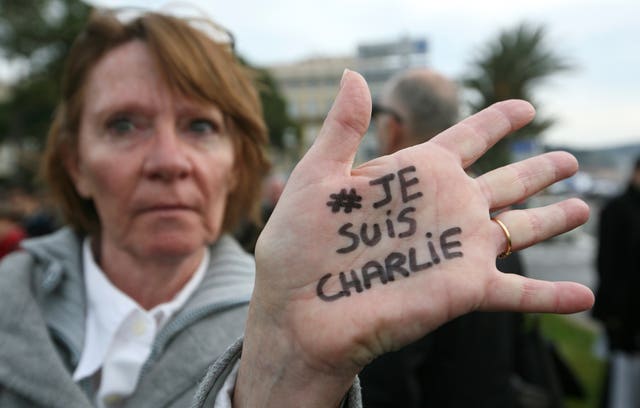France marks 10 years since deadly Charlie Hebdo attacks
President Emmanuel Macron and Paris mayor Anne Hidalgo led solemn tributes at the site of the attack.

A decade after gunmen stormed the offices of the satirical newspaper Charlie Hebdo in a deadly assault, the nation paused to honour the victims and renew its resolve to fight for liberty and democracy.
President Emmanuel Macron and Paris mayor Anne Hidalgo led solemn tributes at the site of the attack, where 12 people, including some of France’s most beloved cartoonists, were killed on January 7, 2015.
Among those remembered was Ahmed Merabet, a police officer who was gunned down on the street while defending the newspaper.

Mr Macron joined police officers in laying wreaths of flowers against the wall of the former Charlie Hebdo headquarters in the 11th district and the gathering observed a minute of silence.
A lone trumpet played, resonating through a neighbourhood scarred by that day’s bloodshed and later by the Bataclan massacre in November of the same year.
The attacks plunged France into a year of unparalleled terror, beginning with the Charlie Hebdo assault and culminating in the co-ordinated November attacks, including the Bataclan tragedy.
Two days after the Charlie Hebdo attack, a gunman stormed a Hypercacher kosher grocery store in Paris, killing four people and taking others hostage.
The nation was left grieving, yet public gatherings became acts of resilience, defying fear and standing firm against violence.
The massacre at Charlie Hebdo, carried out by two brothers claiming allegiance to al Qaeda, signalled the dawn of a dark new chapter for France. A wave of extremist violence forced the country to re-examine its security measures.

Interior minister Bruno Retailleau, speaking on RTL, acknowledged how far France has come – while warning of the persistent dangers.
“France has re-armed considerably, but the threat is still there,” he said, pointing to both external dangers and the rise of homegrown radicalisation.
“The nature of the threat has changed,” Mr Retailleau added. “It is now primarily endogenous — young individuals radicalised through social media. Last year alone, our services foiled nine attacks, the highest number since 2017.”
The attacks’ impact continued to extend beyond France itself. German chancellor Olaf Scholz shared a message of solidarity on social media, writing, “#JeSuisCharlie spread around the world after the barbaric attack on Charlie Hebdo 10 years ago. Today, as then, we share the grief of our French friends. The attack targeted our shared values of freedom and democracy—we will never accept this.”
The attack on Charlie Hebdo, carried out in retaliation for the newspaper’s irreverent caricatures of the Prophet Mohammed, ignited fierce global debates about the limits of free expression.
In the days that followed, millions marched in solidarity, brandishing pens and signs declaring, Je Suis Charlie (I am Charlie).

“Are we all still Charlie?” one television special asked. For some, the answer is a resounding yes — a tribute to those who paid the ultimate price for freedom of expression. For others, French media say, it is a more complicated question.
The newspaper remains unapologetic. Its 10th-anniversary edition features a cover cartoon of a reader perched on an AK-47, captioned “Indestructible.”
In an editorial, the magazine’s director, Laurent Sourisseau, known as “Riss”, defended the power of satire.
“If you want to laugh, it means you want to live,” he wrote.





